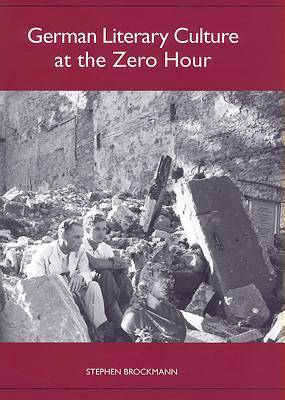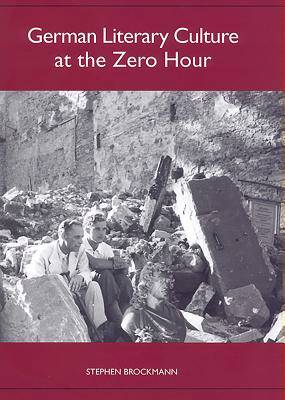
- Afhalen na 1 uur in een winkel met voorraad
- Gratis thuislevering in België vanaf € 30
- Ruim aanbod met 7 miljoen producten
- Afhalen na 1 uur in een winkel met voorraad
- Gratis thuislevering in België vanaf € 30
- Ruim aanbod met 7 miljoen producten
Zoeken
Omschrijving
In the immediate aftermath of the Second World War, German intellectuals and writers were forced to confront perhaps the most difficult complex of problems ever faced by modern intellectuals in the western world: the complete defeat and devastation of their country, the crimes of the Hitler dictatorship, the onset of the Cold War, and ultimately the political division of the nation. To a large extent these debates took place in literature and literary discourse, and they continue to have pressing relevance for Germany today, when the country is rediscovering and exploring this previously neglected period in literature and film. Yet the period has been neglected in scholarship, and is little understood; for the first time in English, this book offers a systematic overview of the hotly contested intellectual debates of this period: the problem of German guilt, the question of the return of literary and political émigrés such as Thomas Mann, the relevance of the cultural tradition of German humanism for the postwar period, the threat of nihilism, the politicization of literature, and the status of German young people who had been indoctrinated by the Nazis. Stephen Brockmann challenges the received wisdom that the immediate postwar period in Germany was intellectually barren, characterized primarily by silence on the major issues of the day; he reveals, in addition to attempts to obfuscate those issues, a German intellectual--and literary--world characterized by an often high level of dialogue and debate.
Stephen Brockmann is professor of German at Carnegie Mellon University. He is the recipient of the 2007 DAAD (German Academic Exchange Service) Prize for Distinguished Scholarship in German and European Studies/Humanities.
Stephen Brockmann is professor of German at Carnegie Mellon University. He is the recipient of the 2007 DAAD (German Academic Exchange Service) Prize for Distinguished Scholarship in German and European Studies/Humanities.
Specificaties
Betrokkenen
- Auteur(s):
- Uitgeverij:
Inhoud
- Aantal bladzijden:
- 295
- Taal:
- Engels
- Reeks:
Eigenschappen
- Productcode (EAN):
- 9781571132987
- Verschijningsdatum:
- 1/08/2004
- Uitvoering:
- Hardcover
- Formaat:
- Genaaid
- Afmetingen:
- 162 mm x 235 mm
- Gewicht:
- 621 g

Alleen bij Standaard Boekhandel
+ 274 punten op je klantenkaart van Standaard Boekhandel
Beoordelingen
We publiceren alleen reviews die voldoen aan de voorwaarden voor reviews. Bekijk onze voorwaarden voor reviews.











